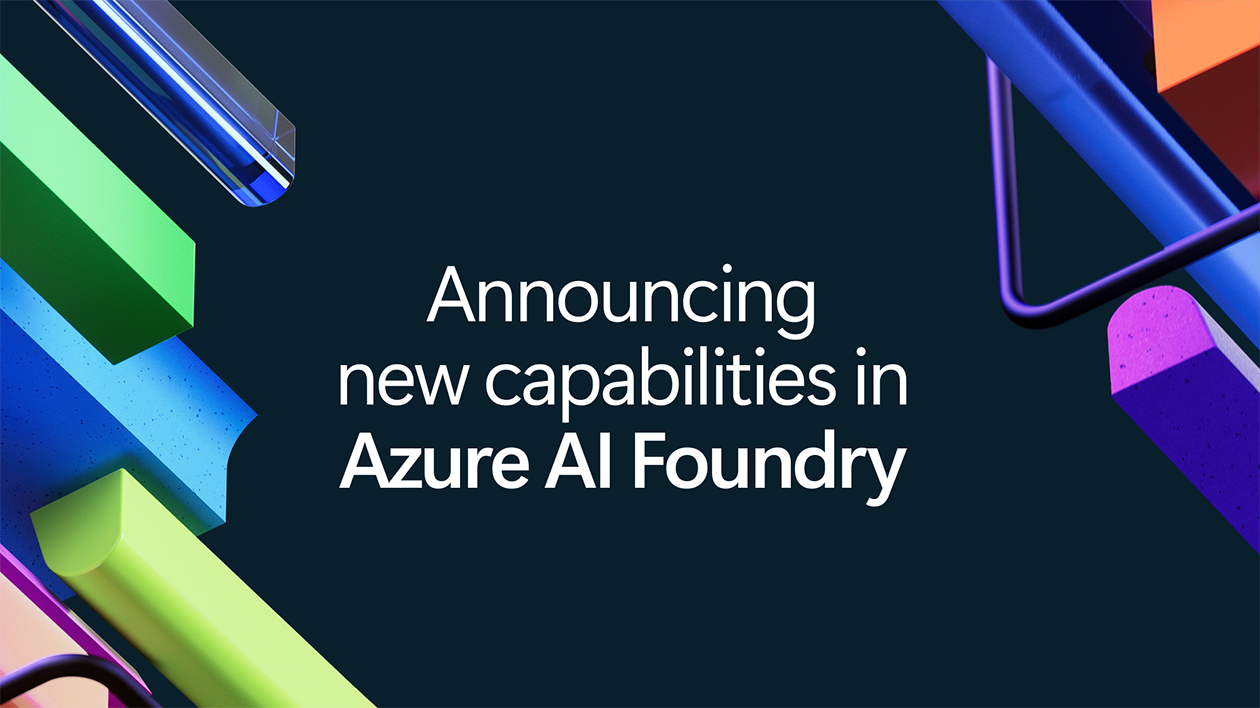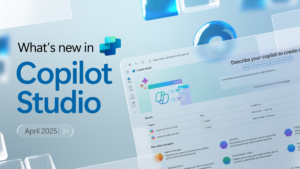Enhanced Features in Azure AI Foundry for Developing Advanced Agent-Based Applications

Advancements in AI: Discovering New Opportunities
The Current AI Landscape
The field of artificial intelligence (AI) is rapidly evolving. Over the last couple of years, AI has transitioned from mere digital assistants to becoming integral partners in the workplace. Companies are not just reflecting on past achievements; they are also paving the way for future innovations. A prime example of this forward-thinking approach is Microsoft’s Azure AI Foundry, introduced during the company’s 50th anniversary.
As technology progresses, organizations are learning to integrate advanced AI models while managing proprietary information, specific tasks, and secure environments. It has become increasingly important for businesses to fine-tune and customize these AI models effectively to maximize their investments.
A Foundation for AI Advancement
Azure AI Foundry serves as a comprehensive platform that provides a variety of tools, workflows, and models to assist developers and companies in creating, refining, and managing AI applications. Essentially, it functions like a factory for AI agents—a modular and standardized system intended for creating intelligent technologies.
The Foundry offers access to over 1,800 pre-built models and valuable tools. Currently, more than 60,000 businesses are utilizing this platform to explore the future of AI.
Transformative AI Applications
The latest developments in AI include advanced agent capabilities. Thousands of businesses have turned to the Azure AI Agent Service, which has shown promising results in productivity and efficiency. For instance, Atom, an AI agent created by Atomicwork, helps IT and HR departments streamline their workflows, improving productivity and employee satisfaction.
New Developments in Multi-Agent Systems
Recently, Microsoft has unveiled an innovative agent framework aimed at simplifying the management of multi-agent systems via Azure AI Foundry’s open-source toolkit called Semantic Kernel. This new framework helps agents work in harmony and minimizes the coding effort required by developers. Organizations like KPMG have already leveraged this functionality to enhance their specialized agents, leading to a reduction in complexity and an improvement in workflow management.
Central to the Azure AI Foundry is a continuous feedback mechanism designed to improve systems over time through real-time monitoring and user feedback. With advanced tools for evaluation and testing, developers gain unprecedented insight into the performance of their AI systems.
Case Studies of AI Implementation
Fujitsu is another noteworthy example. By utilizing Azure AI and Semantic Kernel, the company managed to automate their sales processes, resulting in a significant increase in productivity.
Enhancing Trust with AI Red Teaming
As AI capabilities become more sophisticated, managing inherent risks is crucial. Many businesses still rely on manual techniques for evaluating AI systems, which is not scalable in the long run. To tackle this challenge, Microsoft has introduced the AI Red Teaming Agent, currently in public preview. This tool probes AI models to identify safety risks and generates detailed reports that outline progress over time.
For organizations like Accenture, the opportunity to automate safety checks through the AI Red Teaming Agent ensures responsible development and application of AI technology.
Comprehensive Risk Assessments
Microsoft has also launched new agent evaluations that provide thorough quality and risk assessments. These evaluations help teams build reliable AI systems from the ground up, aiding in the identification and mitigation of possible risks associated with agent behavior.
Supporting Developers
The aim is to create technologies that seamlessly fit into developers’ workflows. To enhance this process, Microsoft has collaborated with GitHub, incorporating GitHub Models into its offerings and enabling open integrations with Azure AI Foundry.
The recent introduction of the Azure AI Foundry extension for Visual Studio Code allows developers to create agent-based applications without the need to switch contexts. Additionally, the new agent mode in GitHub Copilot offers multi-step capabilities that enhance coding efficiency.
In essence, Azure AI Foundry provides a robust framework that empowers developers to create advanced AI agents, facilitating innovation in various areas—from business operations to enhancing customer experiences. Through ongoing developments, Microsoft is poised to support the next wave of AI advancements.





